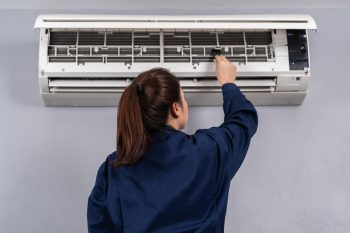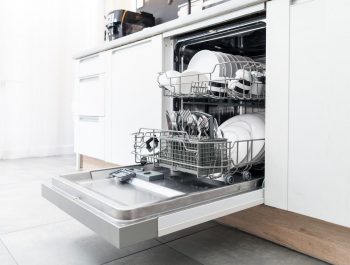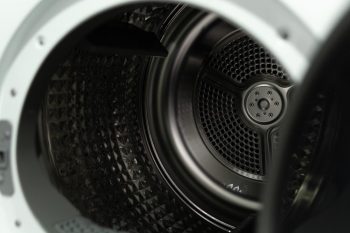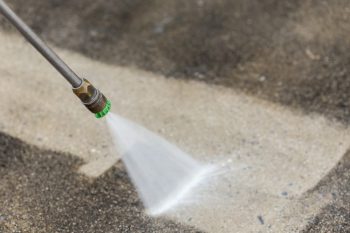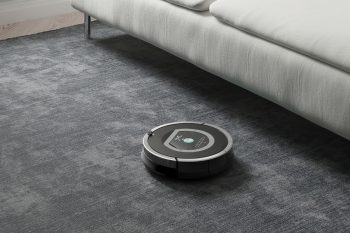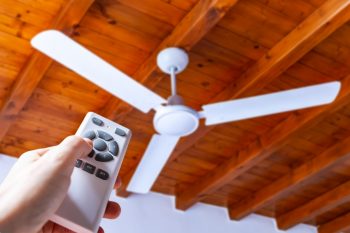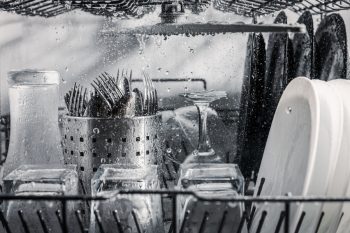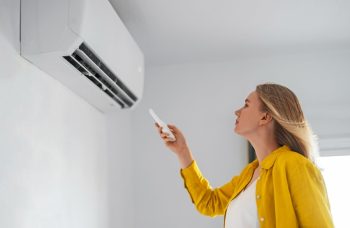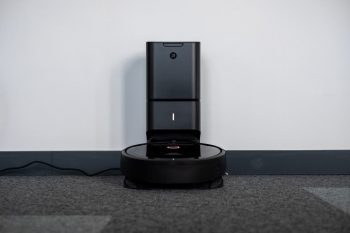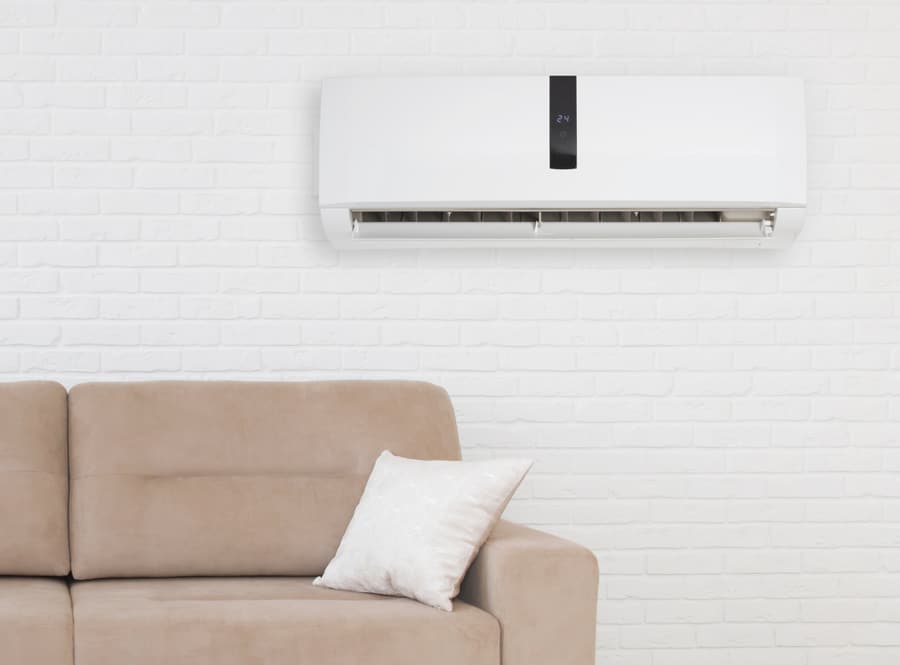
When most people buy an air conditioner, their biggest concern is typically how much of an impact it’ll have on their monthly power bill.
Even though you want to keep cool during the harsh summer months, you still need to think about how much more power you’ll need to run the unit.
That being said, if you’re here, you’re probably wondering how to reduce the power your air conditioner consumes.
Right?
For starters, the longer you have it on, the more energy it’ll consume, so ensure it’s off when you don’t need it.
Besides turning it off whenever not in use, there are so many different ways you can reduce how much energy your unit needs.
Here’s what you can do to help better manage your unit’s power consumption levels:
- Turn it up
- Clean your AC
- Regular maintenance
- Change your air filters
- Switch to a Smart thermostat
- Seal your windows
- Retrofit the unit
- Ensure correct installation
There are numerous online tools you can use to help give you an idea of your unit’s power consumption levels. However, reducing power consumption is typically way more manageable than measuring it.
8 Ways You Can Reduce Power Consumption
There are a few simple things you can do to reduce how much power your air conditioner consumes.
However, the main thing is to try and improve the air conditioner’s overall efficiency, which you can do by conducting regular maintenance and improving the unit’s air circulation.
If you’re tired of high energy bills, don’t fret. Below are some ways to reduce your air conditioner’s power consumption.
1. Turn It Up

You can reduce the unit’s workload by turning up the thermostat’s temperature settings.
Most people normally can’t tell when you make a minor temperature change. Start with half or full-degree increments and then go from there.
After increasing the temperature, give yourself some time to get used to the new temperature setting and decide if you like it.
It’s incredible how much power you can save using this technique.
However, while this method can help you save a lot on your energy bill, comfort is something you’ll need to also keep in mind.
You don’t want to increase your temperature settings so high that it becomes uncomfortable turning on the unit.
Ensure everyone with access to the unit is aware of your power efficiency goals. You cannot reduce its power consumption if you are the only one trying to achieve this.
2. Clean Your AC
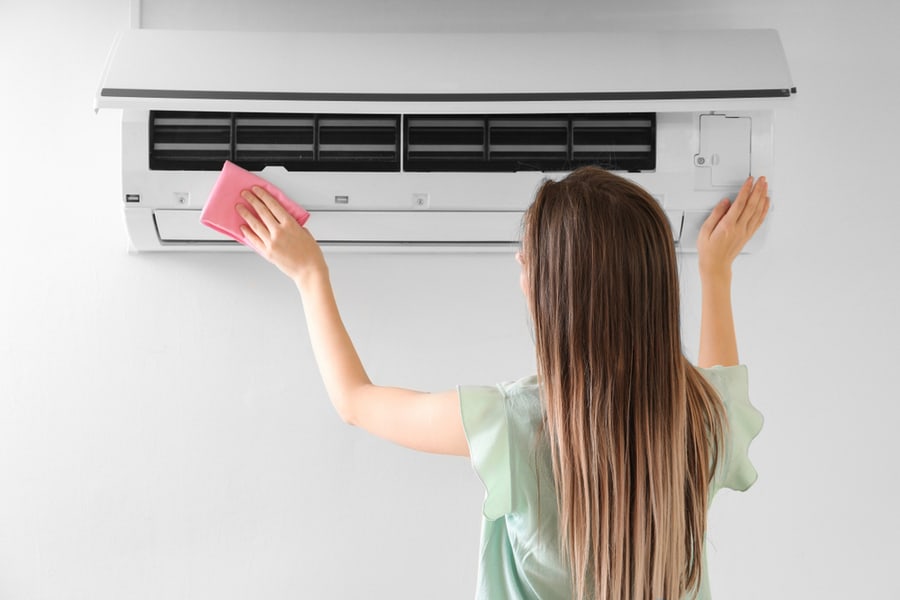
Cleaning the unit can help reduce how much power it consumes.
If the air conditioner filter is clogged with debris, dust, and dirt, air can’t flow through it easily.
This restriction of airflow will cause the air conditioner to work harder, which will then result in higher power consumption levels.
Depending on the model, most experts suggest you clean or change the unit’s filter at least once every month.
It would help if you also cleaned the unit’s condenser coils while you’re at it because they’re constantly exposed to dirt and can impact the efficiency of the unit.
3. Regular Maintenance
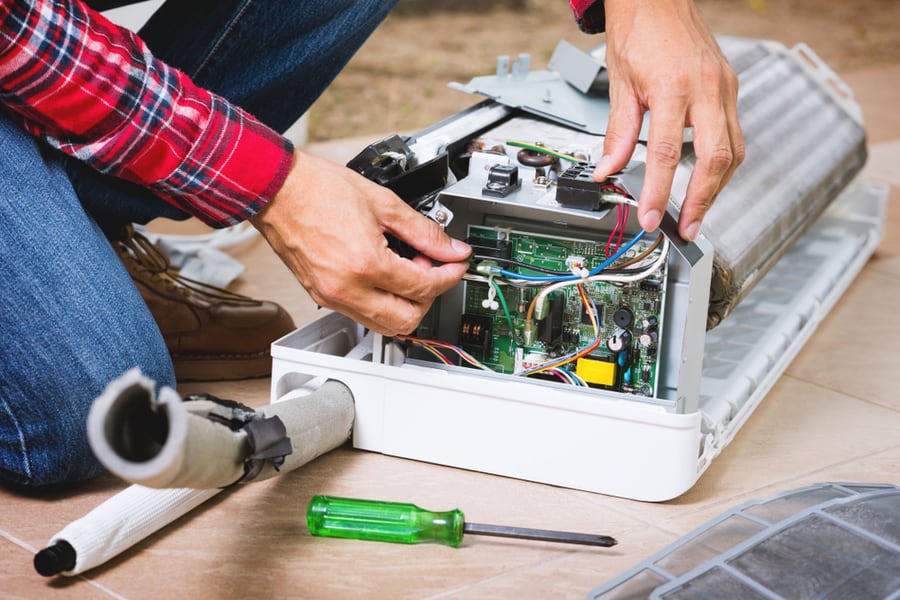
Most people don’t understand how important maintenance is because they don’t see what the technicians see when working on a neglected AC unit.
Replacing worn-out parts, repairing electrical connections, and, of course, cleaning the AC’s components will help make it operate more efficiently and use a lot less power.
4. Change Your Air Filters
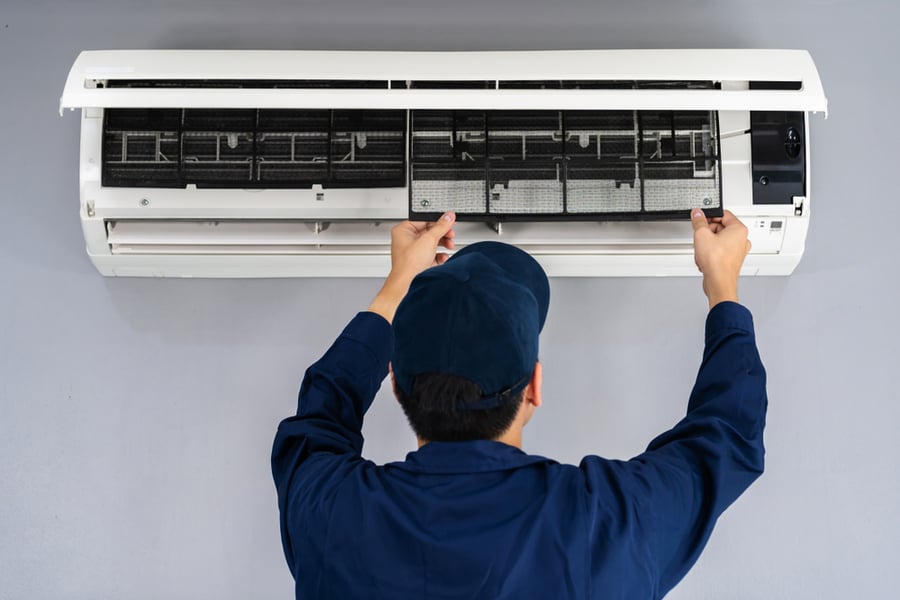
Clogged air filters are like clogged air sinks.
Yes, they’ll allow some things to get through, but they will work smoother if they’re clear of dirt and debris.
If your filters get blocked past their limits, dust and debris will collect on the unit’s motors and fans, slowing down the entire system and causing the AC to run longer.
During the maintenance visits, the technician will know whether they need to change the air filters. You’ll have to replace them more frequently if you use your air conditioner a lot.
5. Switch to a Smart Thermostat
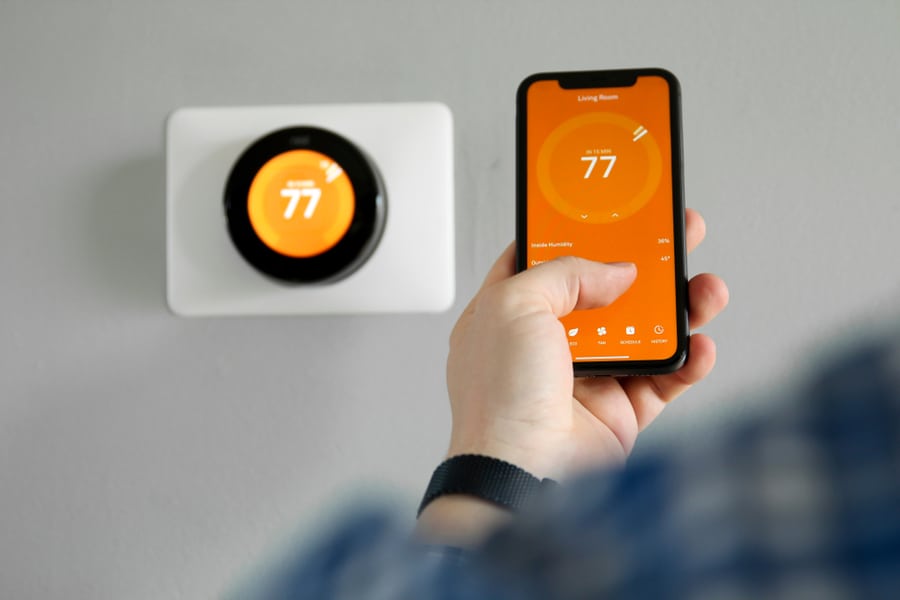
There’s a high chance your AC is running much more than it needs to be and sometimes you’re probably using it when you shouldn’t.
For example, the AC might sometimes be on even when you’re not home. Wouldn’t it be more sensible to ensure it’s off during those periods so you can save on power?
If you want to use your AC more efficiently, you’ll need to make sure the temperature is at the appropriate setting at all times and that it’s running only when you need it.
Many people have a problem keeping track of such.
If you’re one of them, a smart or automated thermostat will help you keep track and allow you to reduce how much power your air conditioning unit consumes.
A programmable thermostat will allow you to set the unit to not run when there are no people in the area.
Some smart thermostats can even learn your schedule after some time and program themselves. Additionally, many of them also come with an application that allows you to manage your temperature settings remotely.
Most of these devices are designed and manufactured with power saving in mind, which is why they’re one of the best ways to help reduce air conditioner power consumption.
6. Seal Your Windows

Make it a habit of checking whether your windows have any air leaks.
Poorly sealed windows will typically force the AC unit to work harder, resulting in higher energy costs in the long run.
Try weather stripping the windows and sealing any leaks you find.
In addition, cover your windows with curtains. While natural light is fantastic, the sunlight streaming into your home will inevitably help increase the temperature in the space.
Shades and curtains will help cool down the space and ease your air conditioner’s burden.
7. Retrofit the AC Unit
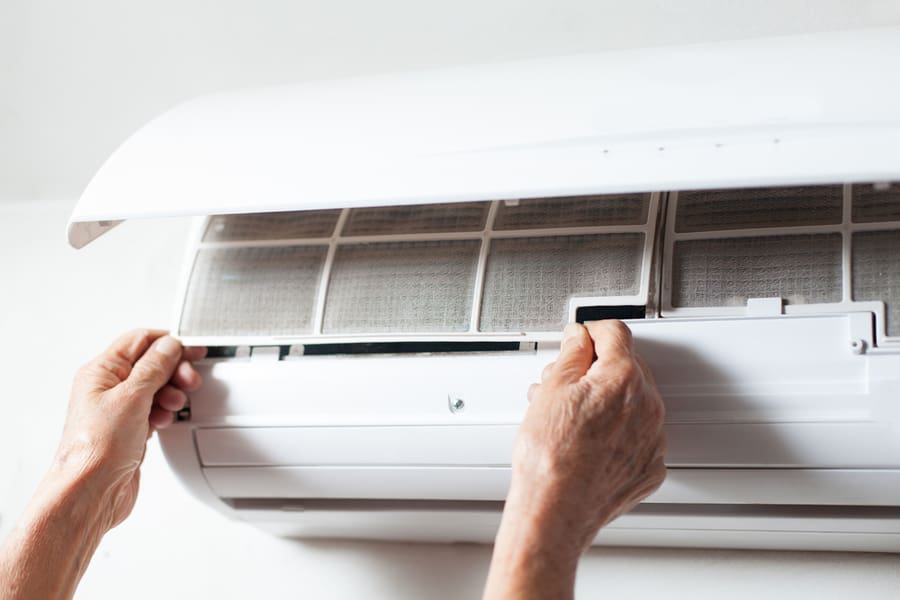
You can make your AC more energy efficient by upgrading old parts.
Retrofitting is an excellent idea if you don’t want to have to spend on a new model.
Some of the ways you can make an old air conditioner more power efficient is by replacing its compressor and condenser fan control components as well as adding more ventilation.
Retrofitting is great if your unit has high power consumption levels and if you use it frequently.
Doing this to your AC will allow you to enjoy the benefits of having a newer model without breaking the bank on a total replacement.
8. Ensure Correct Installation
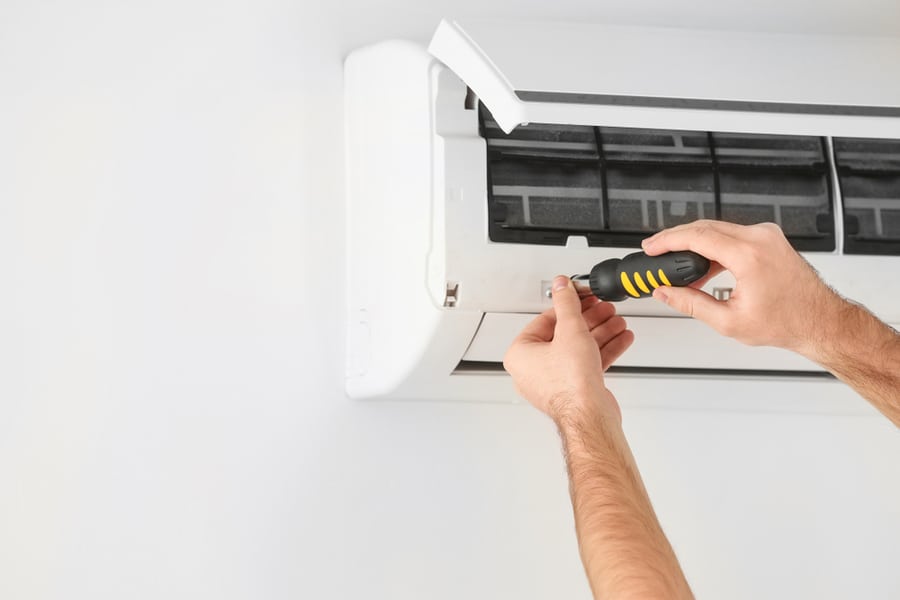
Incorrect air conditioner installation will force it to have to work much harder, in turn reducing its durability and efficiency.
Always hire the service of a trained professional to install your unit. If you use your local handyman, there’s a high probability they won’t do it correctly.
In the worst-case scenario, not only will an incorrect installation lead to higher electricity bills but it could also result in you losing your warranty.
Correct installation will guarantee the flawless performance of the air conditioner for a long time.
Takeaway
You have to deal with huge power bills if your air conditioner consumes much power. It’s typically this unpredictable cost that most people want to avoid.
You can check your AC’s power ratings to try and predict your cost.
Many different things help determine your AC unit’s efficiency, mainly its condition and its age. That’s why it’s hard to calculate precisely how much energy it consumes.
With that said, doing some of the things mentioned above will help reduce its power consumption, thus saving you in the long run.
If you want to reduce consumption, even more, you can consider replacing what you have with an energy-efficient unit.
Frequently Asked Questions
Which Is the Best AC Mode To Save Power?
You can save around 6-8% of power when you increase your unit’s temp by just one degree.
Setting the temperature settings of your air conditioner to about 75 Degrees Fahrenheit can help you save up to 25% on your monthly energy bill.
In this mode, the compressor is non-operational and only the unit’s fan works.
With that said, the best mode for power saving is usually the “Energy Saver Mode.”
Here both the compressor and fan will shut down once the temperature reaches the desired level. Once the temperature starts going back up, the compressor and fan switch on again.
Should I Be Leaving the AC on All Day?
Since air conditioning units use more power when they run all day, it’s safe to say that this could help increase your monthly energy bill.
The more energy the unit uses, the more you’ll have to pay for power. It’s cheaper to let it run at full blast when you’re around instead of having it run at lower levels all day.
What Is the Best Temperature?
A temperature setting of around 75-77 Degrees Fahrenheit is what most experts say is the ideal temperature.
Technical analysis shows that this setting will make you more comfortable at a steady rate.

